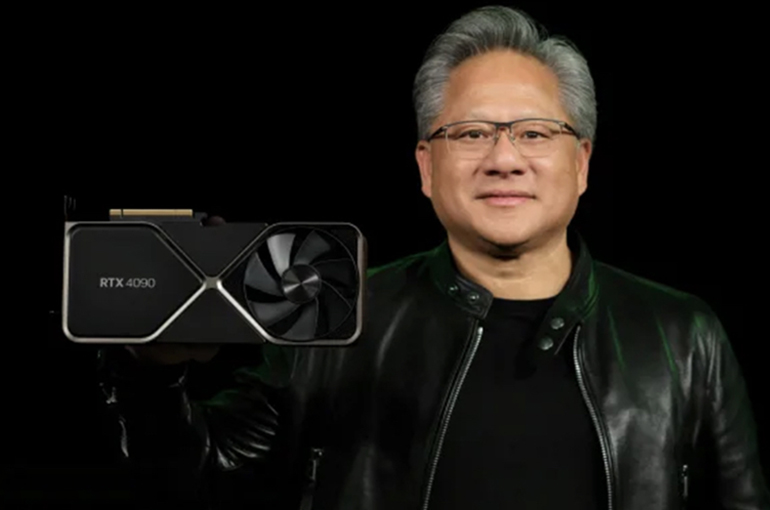 Nvidia Jumps After Launching Super Graphics Cards That Can Be Sold in China
Nvidia Jumps After Launching Super Graphics Cards That Can Be Sold in China(Yicai) Jan. 9 -- Nvidia’s shares climbed after the US semiconductor giant unveiled three new super graphics cards that comply with US export controls and so can be shipped to China.
After ending 6.4 percent higher in New York yesterday, Nvidia [NASDAQ: NVDA] was up 0.5 percent at USD525.20 a share in pre-market trading as of 7.27 a.m. local time today.
The chipmaker yesterday launched the GeForce RTX 4070 Super, RTX 4070Ti Super, and RTX 4080 Super, priced between USD599 and USD999 apiece, before the CES 2024 in Las Vegas. The annual tech trade show runs from today through Jan. 12.
Santa Clara-based Nvidia told Yicai that the three graphics processing units comply with US export restrictions and can be sold in China.
The additions widen Chinese video game studios’ access to powerful GPUs. Nvidia released the GeForce RTX 4090D, an adjusted version of a gaming graphics card, in the Chinese market in December to comply with US export controls targeting the country. Company insiders said the GeForce RTX 4090D is more advanced than the RTX 4080 Super, one of the latest trio.
But high performance comes with a price, as the GeForce RTX 4090D costs CNY12,999 (USD1,842), a similar cost to the RTX 4090 sold in the United States but much more expensive than the newer RTX 4080 Super which sells for USD999.
The three new super GPUs are mainly designed for gaming, but they can also run artificial intelligence applications, according to Nvidia.
“Nvidia GPUs in the cloud can be running really big large language models and using all that processing power to power very large AI models, while at the same time RTX tensor cores in your PC are going to be running more latency-sensitive AI applications,” Justin Walker, senior director of product management, said at the product launch event.
The firm yesterday also introduced production microservices for the Nvidia Avatar Cloud Engine, a platform that helps game developers create avatars so that intellectual property owners can add facial expressions to them based on audio input or translate different languages.
Some of the game developers that use ACE to bring digital avatars to life using generative AI include China's MiHoYo, Tencent Holdings, and NetEase, it added.
Editor: Emmi Laine